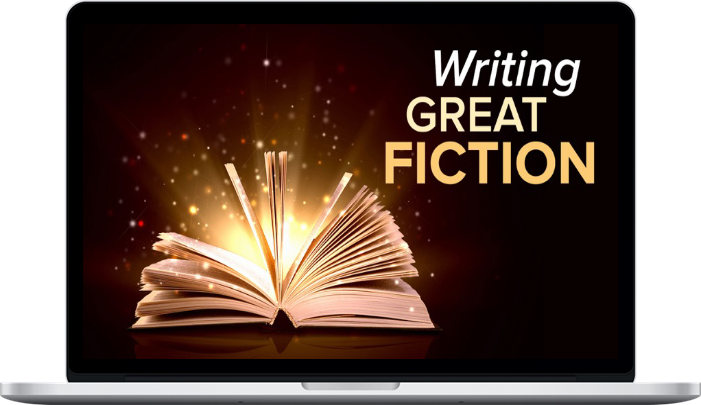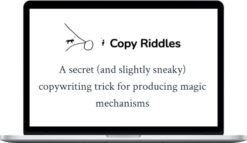Writing Great Fiction – Storytelling Tips and Techniques
$237.00 $47.00
Writing Great Fiction – Storytelling Tips and Techniques
Whether you’re huddled around the campfire, composing an email to a friend, or sitting down to write a novel, storytelling is fundamental to human nature. But as any writer can tell you, the blank page can be daunting. It’s tough to know where to get started, what details to include in each scene, and how to move from the kernel of an idea to a completed manuscript.
Writing great fiction isn’t a gift reserved for the talented few. There is a craft to storytelling that can be learned, and studying the fiction writer’s techniques can be incredibly rewarding-both personally and professionally. Even if you don’t have ambitions of penning the next Moby-Dick, you’ll find value in exploring all the elements of great fiction.
From evoking a scene to charting a plot to selecting a point of view, Writing Great Fiction: Storytelling Tips and Techniques offers a master class in storytelling. Taught by acclaimed novelist James Hynes, a former visiting professor at the famed Iowa Writers’ Workshop and the University of Michigan, these 24 insightful lectures show you the ins and outs of the fiction writer’s craft.
More than just delivering lectures, Professor Hynes offers the first steps of an apprenticeship, showing you not only how fiction works but also how to read like a writer. Here you’ll find explications of novels and stories across the ages:
- Rediscover classics such as Jane Eyre, Bleak House, Middlemarch, Mrs. Dalloway, and others.
- Gain new insights into bestsellers such as the Harry Potter and Game of Thrones series.
- Explore the world of literary fiction, from Chekhov’s “The Kiss” to Marilynne Robinson’s Housekeeping.
- Reflect on what makes characters such as Anna Karenina and Sherlock Holmes so memorable.
- Find out how to create suspense like
Dashiell Hammett, George Pelecanos, and John le Carré.
In addition to showing you how the elements of fiction work, this course is an interactive toolkit. Professor Hynes closes each lecture with an exercise to get your creative juices flowing. Only you know what story you want to tell, but the many examples and writing prompts in these lectures will get you from thinking about writing to the act of writing-often the toughest part of any project.
What You’ll Learn In Storytelling Tips and Techniques
- Starting the Writing Process
- Building Fictional Worlds through Evocation
- How Characters Are Different from People
- Fictional Characters, Imagined and Observed
- Call Me Ishmael: Introducing a Character
- Characters: Round and Flat, Major and Minor
- The Mechanics of Writing Dialogue
- Integrating Dialogue into a Narrative
- And Then: Turning a Story into a Plot
- Plotting with the Freytag Pyramid
- Adding Complexity to Plots
- Structuring a Narrative without a Plot
- In the Beginning: How to Start a Plot
- Happily Ever After: How to End a Plot
- Seeing through Other Eyes: Point of View
- I, Me, Mine: First-Person Point of View
- He, She, It: Third-Person Point of View
- Evoking Setting and Place in Fiction
- Pacing in Scenes and Narratives
- Building Scenes
- Should I Write in Drafts?
- Revision without Tears
- Approaches to Researching Fiction
- Making a Life as a Fiction Writer
Find out more Writing courses
Be the first to review “Writing Great Fiction – Storytelling Tips and Techniques” Cancel reply
You must be logged in to post a review.
When will I receive my course?
You will receive a link to download your course immediately or within 1 to 21 days. It depends on the product you buy, so please read the short description of the product carefully before making a purchase.
How is my course delivered?
We share courses through Google Drive, so once your order is complete, you'll receive an invitation to view the course in your email.
To avoid any delay in delivery, please provide an Gmail and enter your email address correctly in the Checkout Page.
In case you submit a wrong email address, please contact us to resend the course to the correct email.
How do I check status of my order?
Please log in to Courseforjob account then go to Order Page. You will find all your orders includes number, date, status and total price.
If the status is Processing: Your course is being uploaded. Please be patient and wait for us to complete your order. If your order has multiple courses and one of them has not been updated with the download link, the status of the order is also Processing.
If the status is Completed: Your course is ready for immediate download. Click "VIEW" to view details and download the course.
Where can I find my course?
Once your order is complete, a link to download the course will automatically be sent to your email.
You can also get the download link by logging into your Courseforjob account then going to Downloads Page.
Related products
Writing
Writing












Reviews
There are no reviews yet.